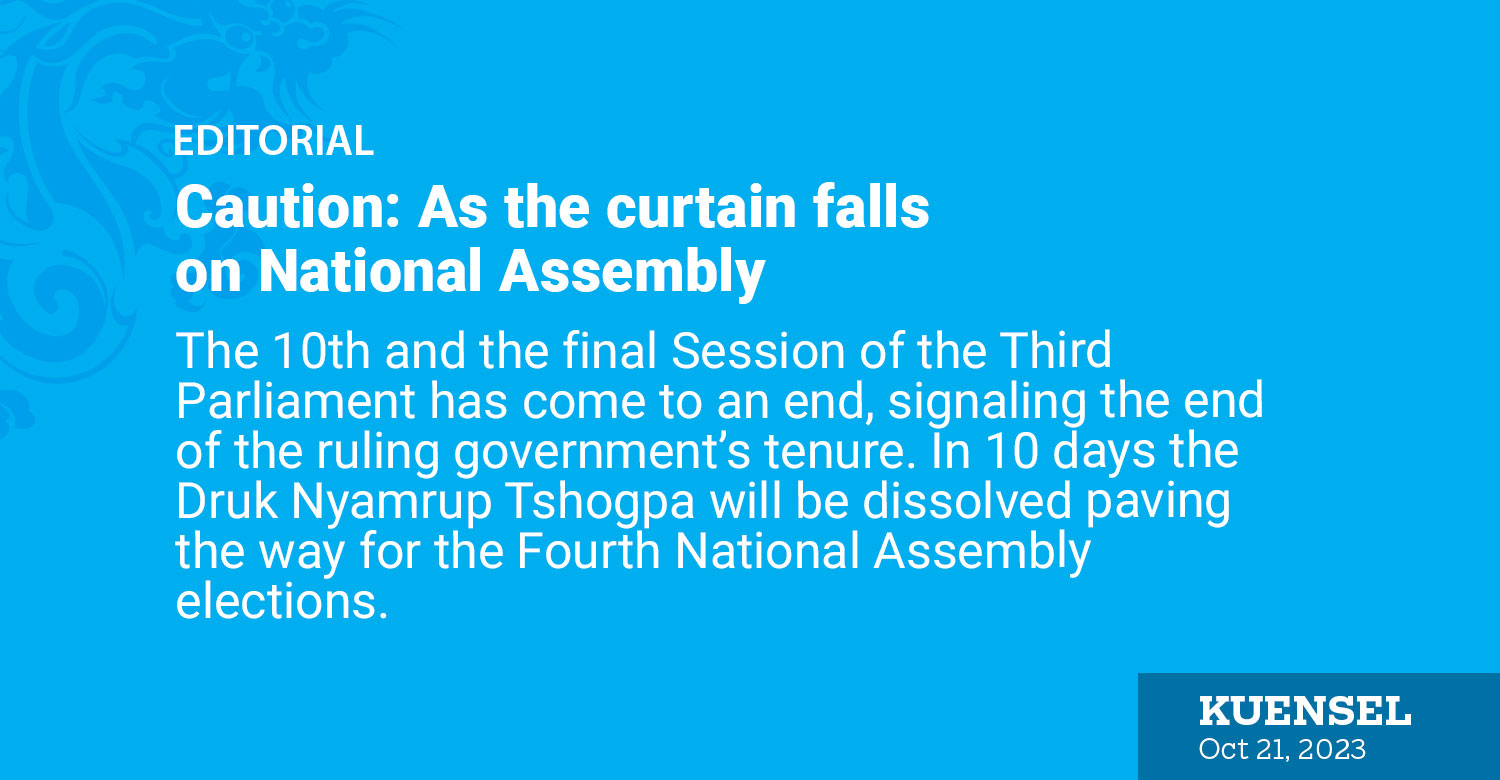The 10th and the final Session of the Third Parliament has come to an end, signaling the end of the ruling government’s tenure. In 10 days the Druk Nyamrup Tshogpa will be dissolved paving the way for the Fourth National Assembly elections.
Since our transition to a democratic constitutional monarchy, we have seen three governments come and go. We had, without much controversy or difficulty, elected three governments who successfully completed their term. There had been criticisms, complaints and sometimes even anger at decisions governments made. There had been appreciation too for the services elected governments rendered. An elected government’s performance is judged by the people. They pass their decisions when they go to the polls.
This will happen as Bhutanese return to the polls soon to give their final verdict. However, the verdict must not be influenced for it will not ensure justice.
The past five years have been full of ups and downs. We could boast of, and rightly, our handling of a global pandemic to ensure lives at the cost of livelihood. We could blame the economic downturn that we are still struggling to come to terms with.
The coming months will be exciting for those who love politics, controversy and even gossip. As we prepare for the campaign period, many are eagerly waiting to listen to plans and policies, pledges or promises and how Bhutan and Bhutanese will be different in the next five years and beyond.
This will start as the five political parties go into full campaign mode. A lot has been restricted even if political parties or candidates conducted so-called familiarisation or consultation meetings. A lot could have been said without the knowledge of election officials or the media. A lot could be heard soon, and loud.
High on the agenda will be the economy. The economy is important as ours has not done well. This is evident from the spending or the restrictions. The government is indebted both to external and domestic lenders. Domestic debt alone has grown 1,500 percent in the past four years restricting available resources for the rest.
Growing debt, external or internal, inflation, slow growth, migration and many more will make good campaign materials. We can assume that there will be promises of reviving the economy, reversing the migration trend, growth, and debt servicing if not promises of better facilities for local government officials, civil servants and many more.
These will all come as honey to the ears. Our voters, even if frustrated with the government, the state of the economy and the lack of opportunities, must question the pledges to improve all these. Just applauding the rhetoric could be making a fool of ourselves.
As we head into the fourth Parliamentary Elections, we should be a lot smarter. Most voters are. But there are still many who could be brainwashed by promises even if they are unachievable.
Even before the government formally exits, there are accusations of political parties resorting to all sorts of things to woo voters. We are heading for a historic democratic election with five political parties contesting. It should be exciting, but it need not be ugly and dirty. Accusations are already flying of who is doing what, including buying villagers, and former local government officials as party workers.
The 2023-2024 election can be already one for the history book given the number of political parties. It should not be so for the wrong reasons. Parties and their leaders are waiting to pour out their hearts. What comes out should be scrutinised, questioned, and reviewed so that the campaign and the speeches are not mere rhetoric to win hearts and votes or create divisions.


